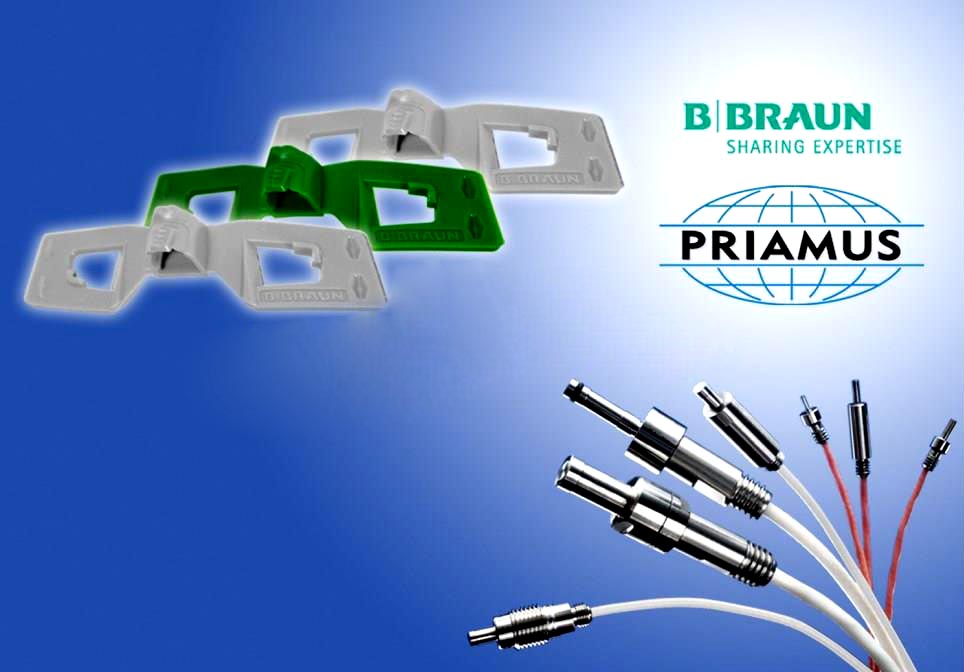 Most shoppers have seen Polymer Logistics products thousands of times and never given them a second thought — the essence of
Most shoppers have seen Polymer Logistics products thousands of times and never given them a second thought — the essence of
functionality.
CEO Jim Vangelos started the Riverside company, providing reusable packaging for shipping and display, out of his living room in Arroyo Grande in 1996, with “no customers, no contracts, just ideas.”
But Vangelos had plenty of experience in the unusual niche business. At Orlando, Fla.-based CHEP USA, Vangelos provided the wooden blue pallets that are ubiquitous at warehouse stores such as Costco, and the returnable plastic containers (RPCs) for produce at stores like Walmart. Then he launched a new RPC line for Hays Logistics, adding an environmentally friendly twist, in that every use — versus corrugated traditional packaging — eliminated about a pound and a half of solid waste. That venture was sold to the Manasha Corp. subsidiary Orbis.
Then, five years ago, Fresh & Easy neighborhood markets came to the Inland Empire, with United Kingdom-based parent company Tesco Plc., the third-largest retailer in the world, out to conquer California, Arizona and Nevada as their first U.S. territories.
Opening its first store in Hemet, the chartreuse green-and-lean chain’s emphasis on eco-sophistry the concrete floors and warehouse-style displays save shoppers money, they say plays on its pitch of convenience store simplicity with energy efficiency keeping prices low.
Naturally, Fresh & Easy was looking for partners like Vangelos, green vendors willing to forego immediate gain for long-term profit as the chain establishes itself in America. “While we were very late in the process of bidding the business, we had a willingness to be flexible,” Vangelos recalls. “With a combination of good luck and timing, I sold them on the vision and got the backing of the parent company to get the business and grow with them.”
Translated: Vangelos’s company would have to make a “heavy investment with no return for awhile.” Vangelos quickly moved the company to Riverside.
The first product for Fresh & Easy was a proprietary crate for in-house bakery items, as it happens, made in Riverside. Since then the company has provided numerous proprietary logistics products, some under the line dubbed “One Touch/Retail Ready.”
They’re logistical in that often the same packaging can go from factory to shipping to display, saving time and money every step of the way.
All of the products can be ground up and remolded when they have worn out, making them sustainable and preferable to the plastics police.
Some of Polymer Logistics new products allow watermelons and potatoes, for example, to be packed at the point of origin and shipped to Stater Bros. or Kroger’s chains, which owns Ralphs locally.
“We tend not to be exclusive to a particular customer; we can’t make things too specific,” said Vangelos, whose products can also be seen at Wal-Mart, Meijer, H-E-B and others. “It is more economical if we make something standardized for the industry, like for tomato growers supplying Kroger , Vons and Safeway.”
Polymer Logistics now employs about 100 people in a 110,000-square-foot facility near the intersection of the 215/91/60 freeways.
Though Vangelos enjoys doing business in Riverside, necessitated in any case by Fresh & Easy’s site selection, he spares the state little quarter.
“California is the toughest state in the union for doing business,” Vangelos says. “They present more regulatory hurdles and protection clauses choking businesses. They’re hurting employment, and they hurt the ability of businesses to grow.”
The company competes against friendly giants such as IFCO Systems and Georgia-Pacific, and buys local product from Rehrig Pacific in Vernon. Vangelos discusses the long-term future of environmental packaging with all them. After five years, and revenue topping $10 million, Vangelos says the company is ready to turn a corner.
“We’re still in the red but the prospects are bright,” he says. “2012 will be our coming-out year. Right now the challenge is to get our model perfect for our customers.”






